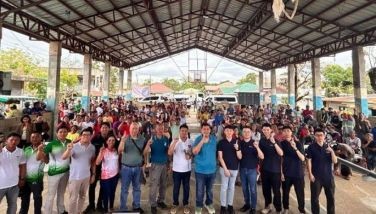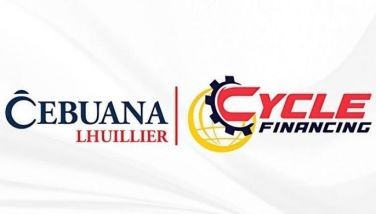Perjured

Ernesto Mercado is a curious sort of witness. In nearly each appearance before the Senate “subcommittee”, he manages to pass on a lie.
In his first appearance, he brought several cakes to the Senate floor, immediately lending a carnival atmosphere to the carnival that would happen. The props were there to decorate his claim that the cakes the city government of Makati cost taxpayers P1,000 each, clearly an overprice.
When the procurement documents were produced, it turned out the cakes cost P300 each. They were priced competitively to the other cakes Mercado brought to guise his outlandish claim with the proper photo op.
After that, Mercado brought duffle bags to the Senate as props for his claim that he delivered money in such bags to the Binay family. The self-styled bagman could produce no other piece of evidence nor any other witness to reinforce that claim.
At the third instance, Mercado claimed Jejomar Binay owned 350 hectares in Batangas where he had pig stys air-conditioned. Subsequently, it was demonstrated the farm he referred to could not be larger that 150 hectares, none of them titled in the name of the Vice-President. On inspection, only the small laboratory in the piggery was air-conditioned, contrary to Mercado’s inflated claim.
On his fourth appearance, he presented a slide show of another home on Tagaytay Ridge, claiming this was owned by Binay. When no documents could be produced to establish ownership, the time was quickly swept under the rug.
He the showed aerial photos of what appeared to be an agricultural estate, saying he took the photos himself. When the flight manifest of the Buddy Zamora chopper used to take the photos was unearthed, it showed Mercado was never on that flight.
The fifth time he appeared, he brought promotional photos of a log cabin at the Tagaytay Highlands, claiming Binay owned a similar property. No record could be produced to prove this claim. Tagaytay Highlands denied Binay owned any property in their exclusive resort.
The last time he appeared, Mercado tried to entertain us with condominium titles, saying Binay owned several pricey units extracted from developers in exchange for City Hall approvals. All the developers chorused to deny this yarn. All the building managers interviewed by media after the latest Mercado “expose” denied the Vice President owned any condo unit.
The only thing correct in Mercado’s latest slide show is a unit where a certain Ariel Olivar was supposedly acting as dummy for Binay. Subsequent fact-checking showed Olivar to be a nephew and assistant of Mercado and one of those aboard the helicopter that took aerial photographs of the Batangas farm.
Binay spokesmen were quick to claim the condo unit Olivar was dummying for actually belonged to Mercado no less. They suggested the unit be seized in favor of the state.
The only clear documentation about the Batangas farm showed a piece of it actually titled in the name of Mercado himself. The accuser was quick to offer to donate the parcel titled in his name.
Why the “subcommittee” of three funny senators never asked Mercado to explain all the inaccuracies he brought to the Senate floor is a wonder of pure partisanship. Why Mercado was never asked on the floor about all the properties he amassed, including a cockfighting arena and several hundred hectares of choice land in Palawan, illustrate how jaundiced the “subcommittee” has become.
Why Mercado is given all the time in the world to peddle perjury before the Senate “subcommittee” and not be made to account for the lies is a testament to the warped intentions of these hearings. So embarrassing has Mercado become that other senators now ask that the “star witness” be made to explain his own amassed wealth.
Excised
The war between the cigarette makers continues.
The Phillip Morris Fortune Tobacco company (PMFTC) came out with full page ads highlighting the findings of the Senate Tax Study and Research Office (STSRO) that a rival tobacco company engages in fraudulent business practices. These practices consist mainly of: a) diverting imported materials intended for cigarettes for export to the domestic market without paying duties and taxes; and, b) undervaluing the cost of tobacco and filter imports to evade customs duties and import VAT.
It is through avoidance of taxes that enables the rival tobacco company to undercut the others and sell cigarettes at a lower price. The rival tobacco company dramatically increased its market share the past few years, higher sin taxes notwithstanding, using price advantages. Those price advantages, PMFTC says, are gained at the cost of lost revenues for government.
In order to curb what PMFTC called “fraudulent” business practices, the BIR installed CCTV cameras in the factory of one cigarette manufacturer. Effective December 1, tax stamps will be placed on all packs of tobacco products.
There are bills in Congress proposing other things such as the imposition of a minimum price for cigarettes. Minimum prices will, the authors of the bills imagine, curb predatory pricing among the manufacturers and help discourage young people from acquiring the tobacco habit.
To date, available data demonstrate that higher excise taxes on tobacco products failed to accomplish the other intended purpose of the Sin Tax Law: the discouragement of consumption. Cigarette consumption remains basically at the same level since higher excise taxes were imposed. This is because some manufacturers are able to sell at low prices through “fraudulent” practices.
In the end, however, this is a matter of reliable enforcement. This week, for instance, a large haul of smuggled cigarettes from Taiwan was intercepted in the Ilocos. The large excise tax was, after all, expected to encourage smuggling.
- Latest
- Trending





















